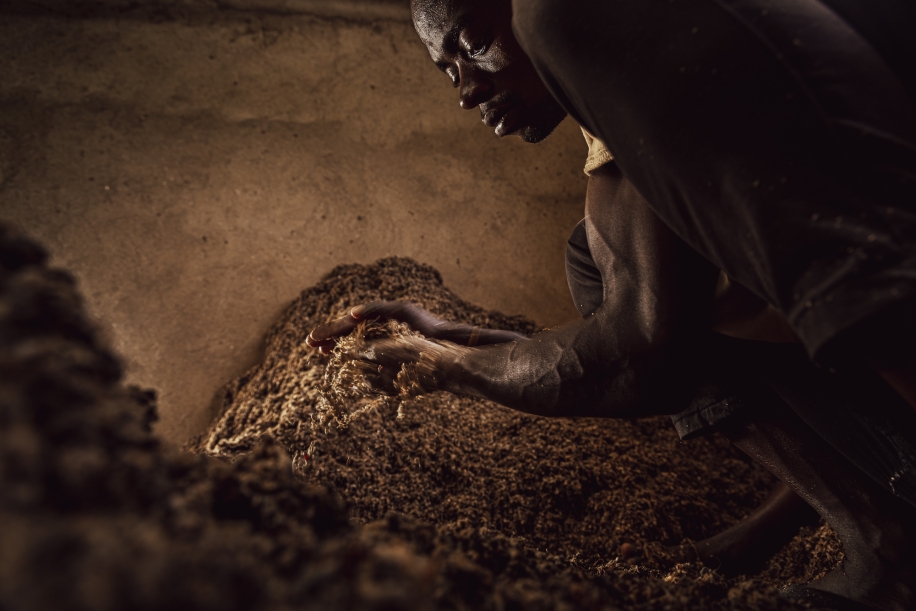
Closing the Circle
Photographer: Glenn Vanderbeke
Exhibit Title: Closing the Circle
Location: Rwanda
Closing the circle is based on circular agriculture, creating new products with waste.
In the Kivu region, coffee farmers derive their income from coffee only once a year, when the beans reach maturity. After they have been washed, tons of cherry pulp and other waste remain from the coffee. This is where the coffee chain normally ends.
Moulins du Nil Blanc enables small Rwandan coffee producers to receive a year-round income and not just at the moment of the coffee cherry harvest.
This by recycling agricultural waste including coffee pulp from Rubavu coffee washing stations, wood waste and cotton waste. Producing varied, delicious, nutritious and eco-responsible, oyster mushrooms.
In a zero-waste system, the used mushroom substrate and vegetable waste are recycled to produce organic fertilizer. Which can be used to fertilize new or existing coffee trees, making this project circular agriculture which completes the coffee chain.
This series is photographed in Kigufi (Rwanda), using Canon equipment.
Zilipa Nyirabyago, founder of Moulins du Nil Blanc
Biologist Zilipa Nyirabyago is making her dream come true: helping coffee farmers in Rwanda earn a stable income by recovering the tons of waste left over after washing coffee cherries and using it to grow mushrooms.
Zilipa Nyirabyago, now also a mycologist, steadily expanded her network. She followed a training at the Mycelia School in Nevele to learn how to make substrate that she can sell to small farmers. She knows everything about mycelium, the network of threads of the mushroom that absorbs the essential nutrients.
All information on the project: https://moulinsdunil.com/
- UMUBANO Vzw
Umubano vzw is a Flemish-Rwandan association that is committed to sustainable development in Rwanda. They want to stimulate cooperation between Flanders and Rwanda and work on projects that focus on combating hunger and poverty and improving living conditions.
- Ondernerms Voor Ondernemers
Entrepreneurs for Entrepreneurs (OVO) is an organization that is committed to strengthening sustainable entrepreneurship in Africa.
Wilde Ganzen is a Dutch foundation that is committed to combating poverty in developing countries. They do this by: supporting small projects, stimulating self-reliance and finding sustainable solutions.
Make Comment/View Comments